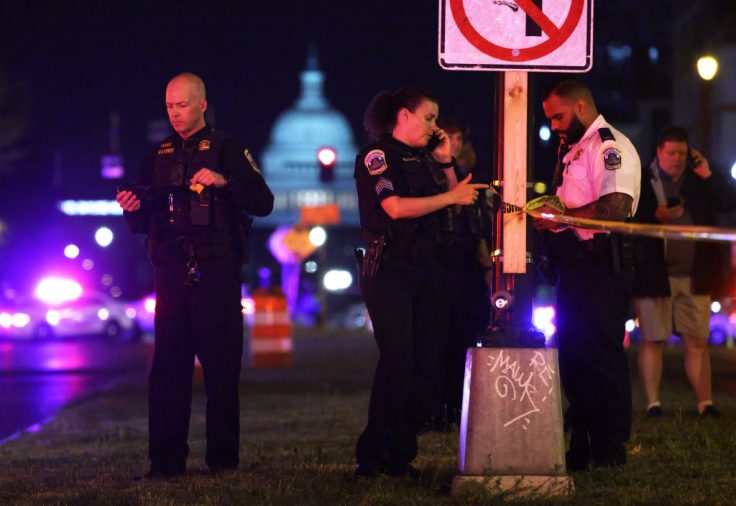A Washington, D.C., teenager who went on a days-long robbing spree last month cannot be charged as an adult and will thus avoid significant punishment, the latest example of a juvenile crime surge that critics say the city refuses to take seriously.
D.C. police in late August arrested five teenagers who were caught on video attempting to carjack a man they followed using a different stolen vehicle. For one of the suspects—a 13-year-old girl—that incident came at the tail end of a four-day string of robberies, which allegedly saw her commit another carjacking, among other thefts. While those charges could lead to decades of prison time for an adult offender, the female suspect and her four accomplices were all charged as juveniles, as only some 16- and 17-year-olds can be tried as adults in the nation's capital. As a result, one of the suspects was released immediately, while the others will face more lenient sentences—D.C.'s juvenile justice system has no mandatory minimums.
The ordeal reflects D.C.'s ongoing juvenile crime surge, an issue that local experts and crime victims say the city is failing to combat. More than 63 percent of D.C. carjacking arrests this year have involved juveniles, according to a city database, and a 14-year-old district resident was charged with felony murder in July. D.C. attorney general Brian Schwalb (D.) has nonetheless defended his emphasis on rehabilitation "restorative justice" when it comes to juvenile crime, saying during an April town hall that "kids are kids" and should not "be treated as adults." Earlier this summer, Schwalb opposed a measure to expand pretrial detention for dangerous juveniles.
For former advisory neighborhood commissioner Denise Rucker Krepp, a D.C. Democrat, Schwalb's approach emboldens violent criminals.
"Murder, armed robbery, and armed carjacking are not juvenile crimes," Krepp told the Washington Free Beacon. "They are adult crimes and should be prosecuted as such."
Schwalb's office, which declined to comment, handles criminal cases that involve youths under 18 years of age. Juvenile offenders in D.C., regardless of the severity of their crimes, cannot be held in jail beyond their 21st birthday. As a result, even juvenile murderers in D.C. have avoided significant jail time.
In one case, a 15-year-old who shot Washington Commanders running back Brian Robinson Jr. and killed another teen was sentenced to just six years in jail—the maximum amount allowed for a juvenile of that age. The slain teen's mother lamented the district's inability to prosecute the offender as an adult.
"I think if you're old enough to shoot someone or take someone's car with a gun, you should be able to do life in jail, you should be able to do the time for the crime, 'cause I'm never going to see my son again," the mother said.
Still, the high-profile case did not prompt Schwalb to change his tune on juvenile offenders. Just months after the ordeal, Schwalb in June lamented that the "system" has failed D.C. kids "long before" they commit crimes, stressing the need to engage in an "effort to rehabilitate."
Included in Schwalb's rehabilitation efforts is a "restorative justice program" that allows a juvenile offender to avoid jail time should the victim agree instead to pursue a "facilitated conversation." Schwalb's website notes that the concept "hails from indigenous practices in Native American, West African, and New Zealand cultures." D.C. juveniles can also be referred to a diversion program that keeps them out of the "juvenile delinquency system" in favor of "individual and family therapy" and other "services."
In the case of the 13-year-old carjacker arrested last month, however, the victim—a food delivery driver named Mohamed—will almost certainly decline to participate in Schwalb's "restorative justice program."
"It's very bad for [the] community. … I am scared to go to D.C. [to] work," the victim told Fox 5. "Why this age—why not go to school?"
